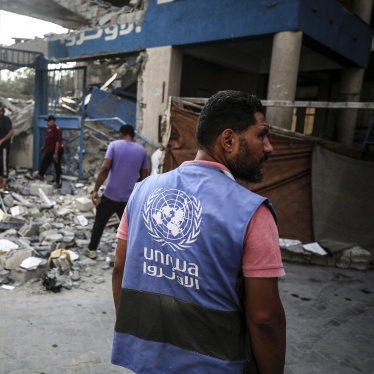Thank you, Madam President
We are particularly dismayed that Iran rejected a majority of the recommendations with regards to ratification of the core human rights treaties, in particular the Convention on the Elimination of All Forms of Discrimination against Women (CEDAW) and the Convention against Torture.
Iranian officials first discussed ratifying CEDAW more than 22 years ago, yet Iranian women continue to suffer from many different forms of discrimination in law and practice with respect to marriage, divorce, inheritance, and occupying certain professions, including the highest elected office in the country.
Iran not only rejected recommendations for ratifying the Convention against Torture, but the government also rejected several recommendations regarding the investigation of specific cases of alleged torture and criminalization of torture in national legislation, even though torture in detention remains one of the most serious concerns of the independent monitors.
On February 18, the BBC’s Persian service published a detailed account of the psychological torture and threat of physical torture during the interrogation of Niloufar Bayani, a former UN Environment Program consultant and one of eight members of an Iranian environmental NGO who have been detained on bogus espionage charges for over two years. Bayani had shared an account of the inhumane treatment she experienced in detention when she appeared before a judge in February 2018. The judge’s response was to bar her from attending her own trial instead of investigating these allegations. Bayani’s case is only one of several cases of torture reported over the past year.
We also regret that Iran rejected several of the recommendations to protect the right to freedom of assembly. Iranian authorities in November carried out a brutal crackdown against protesters. Human rights groups estimate that 300 people, including bystanders, were killed during the protests, and video footage shows security forces using excessive and unlawful force to repress the protests. After four months, authorities have not announced the total number of deaths and have not provided families of victims with any answers as to what happened to their loved ones.
Iran has a serious accountability problem. Failure by authorities to investigate serious human rights violations has significantly damaged public trust, which further diminishes the government’s ability to manage a crisis such as the current coronavirus outbreak. The international community should stand ready to support Iran’s efforts to combat the coronavirus, including by providing access to medical devices and testing kits hindered by comprehensive economic sanctions, but they also should make clear to Iran that their failure to uphold human rights obligations harms all Iranians.








